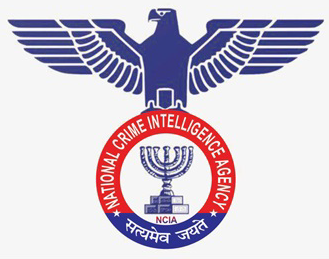EOW Cell & Police Station House
Civil litigation, Criminal , Commercial Litigation, Arbitration Proceedings, Intellectual Property Rights , Personal & Family Litigation, Income Tax Litigation, GST , Company Law , Consumer Case , Mediation & Conciliation.
3000 +
Happy clients
300 +
Advocate, CA, CS
10 +
Associates Offices
Request A Call Back
EOW Cell & Police Station House
EOW Cell & Police Station House
Economic offences Wing of CBCID had been created in 2009 vide Government order (Ms) No. 181/09/Home dated 17/11/2009. This wing investigates various types of Frauds that result in wrongful gain to the offender(s) and wrongful loss to the victim(s), which are offences under Indian Penal Code and under various Special Acts that cover specific Economic offences. Economic Offences Wing is being headed by Inspector General of Police, EOW and consists of 3 units each headed by a Superintendent of Police.

The Supreme Court made it mandatory for police to register a first information report on receiving a complaint about a serious offence, freeing criminal investigation from the rampant abuse of discretionary powers by the local Thana in-charge i.e. in-charge of Police Station House Officer.
“If discretion, option or latitude is allowed to the police in the matter of filing of FIRs, it can have serious consequences on the public order situation and can adversely affect the rights of the victims, including violation of their fundamental right to equality” said a five-judge constitution bench of Chief Justice P Sathasivam and Justices B S Chauhan, Ranjana P Desai, RanjanGogoi and S A Bobde.
Writing the judgment for the bench, Justice Sathasivam said – “It would be incongruous to suggest that though it is the duty of every citizen to inform about commission of an offence, but it is not obligatory on the officer-in-charge of a police station house to register the report.”
This order will help stamp out the chronic practice among police across the country to either refuse or delay registering FIRs or taking police complaint on record and deny giving Daily Diary Number to thee complainant with the object of keeping crime figures artificially low or, worse, favoring influential accused.
“Registration of FIR is mandatory under Section 154 of the Criminal Procedure Code, if the information discloses commission of a cognizable offence and no preliminary inquiry is permissible in such situations,” the court said. The Indian Penal Code (IPC) categorizes those offences as cognizable which attract a minimum of three years imprisonment as punishment.
Apart from refusing to register FIRs on complaints by the poor and the marginal complainant, the police develop cold feet in recording an FIR if the accused is an influential person. Refusal to register FIR in such cases would be punishable, the court warned. From now, police must register FIR and can close it if they find no evidence to substantiate the charges made in the complaint after investigation.
The scope of the preliminary inquiry is not to verify the veracity or otherwise of the information received but only to ascertain whether the information reveals any cognizable offence. The court said and fixed a seven-day limit for the police to complete the preliminary inquiry. If the preliminary inquiry leads to closure of the complaint, the police officer must inform the complainant about the decision and the reasons behind it, the court said while limiting the preliminary inquiry process to a select few categories of cases.
“As to what type and in which cases preliminary inquiry is to be conducted will depend on the facts and circumstances of each case. The categories of cases in which preliminary inquiry may be made are—matrimonial and family disputes, commercial offences, medical negligence cases, corruption cases and those involving abnormal delay in initiating criminal prosecution, for example, an over three-month delay in reporting the matter without satisfactorily explaining the reasons for delay,” the bench said.
“The police cannot avoid their duty of registering offence if cognizable offence is disclosed. Action must be taken against erring officers who do not register an FIR if information received by them discloses a cognizable offence,” the bench said.
A two-judge bench of the apex court had in 2008 ruled that registration of FIR was mandatory on complaints alleging commission of serious offences. But given the wide ramification of the issue, it was later referred to a five-judge constitution bench. The constitution bench, which agreed with the two-judge bench, said if the complaint or the information received “did not disclose a cognizable offence but indicated the necessity for an inquiry, a preliminary inquiry may be conducted only to ascertain whether cognizable offence is disclosed or not”.
Importantly, the court ordered the police to enter in its daily diary all information received about cognizable offences prior to registration of FIR.
“Since the general diary/station diary/daily diary is the record of all information received in a police station, we direct all information relating to cognizable offences, whether resulting in registration of FIR or leading to an inquiry, to be mandatorily and meticulously reflected in the said diary and the decision to conduct a preliminary inquiry must also be reflected,” the bench said.
Nature of dispute, law-breaking and violations
There are several crimes and wrong-doing acts may be committing by the offenders against the victims:
- Frauds in Banks/NBFC and Investment Frauds by Bogus companies.
- Frauds committed by Chit fund companies, Bank and NBFC.
- Money circulation defrauding schemes and Money Laundering
- Offence relating to the Army, Navy & Air Force
- Violation ofMulti-Level Marketing and Foreign Currency Trading Frauds
- Large Scale Misappropriation by Employees and Job rackets.
- Offence relating to Education, obtaining Visa
- Offence related to real estate
- ATM Frauds, cheating, theft and Credit Card/ Debit Card Frauds.
- Offence relating to Religion, affecting life, miscarriage, Hurt, wrongful restraint & confinement, kidnapping, slavery, labour and sexual offences.
- Offence related to Land encroachment, extortion, misappropriation of property, breach of trust, cheating, mischief, trespass, using Forged title documents
Our Services
- Appearances before EOW cell and Police Station Houses for filling complaint and defend the matter as the nature of case.
- Drafting criminal police complaint, reply, producing documents etc.
- Rendering services for conducting interim bail and quashing of FIR in theDistrict courts, judicature of High Courts, and Supreme Court of India.
- Advising clients on the appropriate venue of mediation, conciliation, arbitration, and choice of procedural and substantive law.
- Representing clients before arbitral tribunals with regard to disputes arising out of agreements containing arbitration clause.
- Applying to stay proceedingsbrought in breach of arbitration clauses
- Drafting and filling u/s 156(3) complaint before CMM.















































